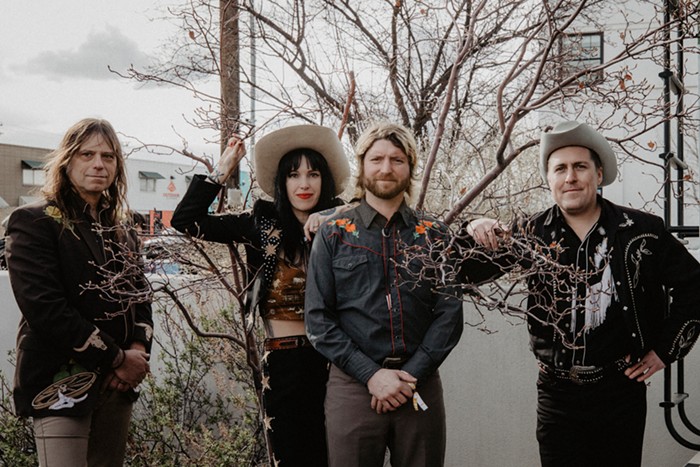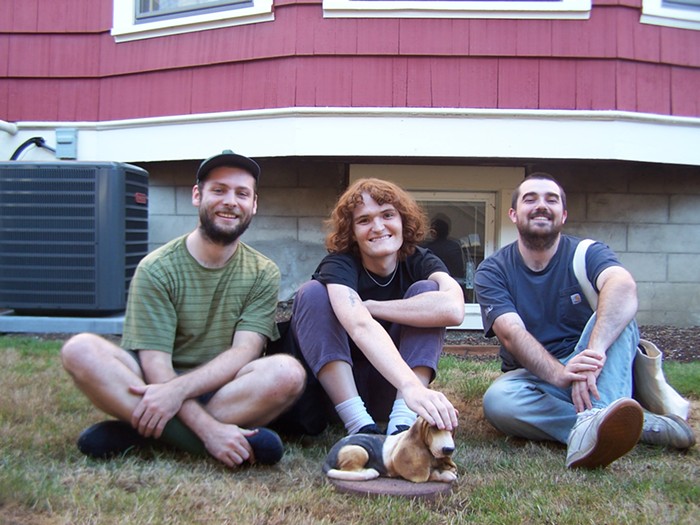In listening to Grouper's Dragging a Dead Deer up a Hill, I was plagued by the sense that I had heard it, or something very much like it, before. The haunting album is the fourth from transistor-incubated, guitar-voice-and-found-sound-based dreamtime experimentalism by Portland resident Liz Harris under the name Grouper. On this latest outing, Harris gently dials down the warmly obscurant, milky delay and drone that were the hallmarks of previous efforts, leaving her lovely, unlabored mezzo-soprano appealingly revealed, harmonizing with itself mainly to the reverb-sprinkled accompaniment of her guitar's insistent, alternate-tuned down-strums. The traditional folk elements of Grouper thus exposed, I racked my brain to determine which female singer/songwriter's album I was being reminded of. I racked and re-racked, but to no avail.
And then I realized that Dragging a Dead Deer was reminding me not of another album, but of an experience; waking up in my own bedroom in the middle of the night and not knowing where I am for a brief, disturbing instant. Dragging a Dead Deer was not itself familiar to me, but, rather, evocative of the experience of delayed recognition and un-place-able familiarity. Grouper had managed to viscerally express in song with startling specificity one of the most ineffable of human experiences; that of "The Uncanny," the simultaneously familiar and foreign, the comfortable and the frightening. The resultant album is breathtaking in the full sense of the word.
Harris, now 27, came of age in a Fourth Way "intentional community" (a commune inspired by the philosophy of Armenian mystic G.I. Gurdjieff) in Northern California. The community was called "The Group," hence the name Grouper.
Harris explains, "The kids called each other and the parents 'Groupers,' sort of as a defiance. It was us making our own identities inside a pretty controlled environment, and sort of lashing back maybe. Then when I had to think of a [band] name I felt annoyed at nothing sounding right. Wanted something that referenced me without referencing 'Me.' I felt like the music was at its barest just a grouping of sounds, and I was just the grouper."
In this relatively hermetic world, Harris' primary sources for discovering music were her parents, whose eccentric and divergent tastes—Eastern European folk and avant pop like the Talking Heads for mom, contemporary classical and early music for dad, a composer—are both audible on their daughter's new LP. Pop fans will hear echoes of classic 4AD shoegaze in the rich textures and vocal melodies of "Invisible," while classicists will feel the Renaissance presence of Gesualdo and Monteverdi in the neo-madrigal "Wind and Snow" and the cascading counterpoint of album highlight "Stuck."
Harris says, "I guess this album partly ended up being me thinking about the past, and the way we carry around the dead festering weight of it for a long time, or I did anyway, and how maybe we have to leave it off somewhere at some point, even if the ghosts of its carcass come back to haunt and talk to us at night." How strange. How wonderful.
Grouper celebrates the release of Dragging a Dead Deer up a Hill at Rererato on Friday, July 11.



















